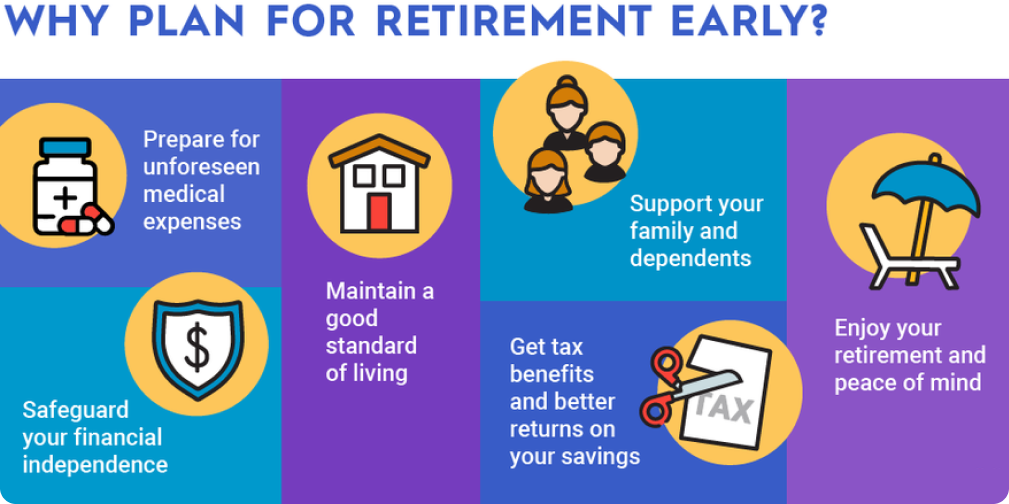“Profit Masters Academy was a key player in maximizing my crypto profits. The broker they connected me with knew exactly when to enter and exit trades. I couldn't be happier!"
Best Online Stock Brokers for Beginners for May 2023
Are you ready to begin investing but aren't sure where to start? We'll help you get going with our list of best online stock brokers for beginners. We've also included a guide to explain what to look for in a stock broker, where to buy stocks, plus a few terms you'll want to be familiar with as you explore and compare the best investment companies for beginners.
Overview of the best brokerage accounts for beginners
We know everyone's financial circumstances and goals are different, so we've chosen a variety of brokers to help you find one that meets your needs. Here's a review of our picks for the best online brokerages for beginners.
Fidelity
Best for: DIY investors
Fidelity is a solid broker for investors who want a well-rounded broker with excellent customer service and low fees. Fidelity is one of the few large brokers to offer fractional share investing, and it also has a branch network throughout the United States.
Robinhood
Best for: Mobile investing
Robinhood is a good option for investors who want a standard brokerage account where they can buy and sell stocks and/or cryptocurrencies (via Robinhood Crypto) through an easy-to-use app. Robinhood allows users to buy fractional shares of stock, and also is one of the few brokers to offer commission-free options trading.
SoFi Active Investing
Best for: Membership ecosystem
SoFi can be a good fit for investors who want an easy-to-use stock trading app that offers other financial products and services as well. SoFi has some unique features, such as cryptocurrency trading, fractional share investing, and access to IPO investing for smaller investors. SoFi is also one of the few platforms to offer commission-free options trading to its members.
E*Trade
Best for: Mobile platform
E*Trade is a solid choice for investors who want a top-notch trading platform, great educational resources, and many different investment choices. E*Trade offers a wide variety of account types and is a great well-rounded brokerage that will meet most investors' needs.
Merrill Edge ® Self-Directed
Merrill Edge ® Self-Directed
Merrill Edge is a great choice for Investors who want the choice of stocks, bonds, mutual funds, ETFs, CDs, and options. Merrill Edge is an especially good option for people who want access to real-live financial advisors, as Merrill is owned by Bank of America and has advisors in many of its branches across the country.
TD Ameritrade
Best for: Research
TD Ameritrade is one of the most popular brokers in the world, and for good reason. The platform is a great fit for investors who want a well-rounded brokerage experience, great customer support, and lots of account and investment options. TD Ameritrade has excellent educational resources for beginners, several trading platforms for investors of all skill levels, and pretty much every type of brokerage account you can think of.
Charles Schwab
Best for: Retirement investors
Charles Schwab is a good brokerage choice for investors who want lots of investment and account type options, several ways to get customer service, as well as great banking and cash management products. Schwab offers some great features such as fractional share investing, and also has an excellent robo-advisor platform for investors who want to take a more passive role in their strategy.
Acorns
Best for: Rounding up spare change to invest
If you don't want to choose individual stocks and funds to invest in, Acorns can make good sense for you. The Acorns platform is best suited to investors who want to completely automate their investment strategy. Acorns is a robo-advisor that makes investing easy, with features like automatic round-up of purchases to the nearest dollar and investing the change.
Vanguard
Best for: Low-cost index investing
Vanguard is a good broker for investors who want to put their money into ETFs or mutual funds, particularly Vanguard's own. Vanguard's low-cost ETFs and mutual funds are rarely on any brokers' no-transaction-fee (NTF) lists, but investors can certainly buy them directly and avoid commissions.
Cash App Investing
Best for: Mobile investing and banking
Cash App isn't exactly a full-featured broker, but it can be a good investment account for beginners who want a simple platform to occasionally buy and sell stocks, invest in fractional shares, and trade Bitcoin.
What is a stock broker?
A stock broker is a trading platform (or person) that facilitates the buying and selling of marketable securities like stocks and exchange-traded funds (ETFs). Through a stock broker, you can open a brokerage account, a specialized financial account designed to hold investments and cash.
The term is often used interchangeably with "brokerage," which is technically the name for a business that employs brokers or acts as a broker to facilitate trading.
When you want to buy stock in a company, you can't simply call up the company and buy shares, and you can't just walk into your local bank and invest. You need a specialized brokerage account, and that's where stock brokers come in.
What are the different types of brokerage accounts?
There are two main types of stock brokers: discount and full-service. They each come with distinct costs and levels of service.
Discount broker
Elevator pitches for each stock
A discount broker is a company that lets an investor buy and sell securities online. As a customer, you can direct the process of buying and selling stocks or sign up for an account with a robo-advisor that'll automate your investments. Many discount brokers have features that help you decide how to direct your trades, but typically there's no human broker taking and filling your orders.
True to their name, discount brokers are much cheaper than full-service brokers, and most offer zero-commission stock trading. For the vast majority of investors -- especially the beginning investor -- a discount broker is the best choice. That's why our picks for the best trading platform for beginners are exclusively discount brokers.
Full-service broker
Think of a full-service broker as an old-school broker. It's a firm that usually operates out of a physical office where an actual person, also called a stock broker, takes and executes clients' buy and sell orders. A full-service broker might also provide personalized investment planning services, such as stock-buying advice, tax guidance, and retirement planning help.
Full-service brokers are far more expensive than discount brokers, given the costs of human advisors and brick-and-mortar locations. But costs have generally come down over the past few decades as they face competition from stock brokers, aim to make investing more accessible, and gain access to tools to automate work on their end.
Full-service brokers are best suited to high-net-worth investors who want a personal level of service and dedicated investment portfolio management. Discount brokers are most appropriate for nearly all investors.
How to pick the best online stock broker for beginners
There's no perfect broker for everyone, but here are some of the important factors to keep in mind as you're looking for a stock broker for beginners.
Cost structure:
The best brokerages for beginners charge no commissions for online stock and ETF trades (what you'll generally focus on as a beginner) -- but many do charge commissions or fees for more complex moves like options trading, mutual funds, and other products.
Account minimums:
Some stock brokers have a minimum deposit requirement to open an account, anywhere from $5 to $500, and some don't charge anything at all. We've narrowed our picks to brokers that don't have account minimums. Note that some brokers don't allow fractional share investing, so you'll need enough money to buy at least one share of a stock or ETF. These low-barrier-to-entry brokerages let anyone get started investing, even without a ton of capital.
Variety of funds:
Picking individual stocks isn't right for everyone, especially beginners. The best investing platform for beginners offers low-cost exchange-traded funds and no-fee mutual funds to help you invest wisely without a ton of stock market knowledge.
Account options:
Within the realm of stock brokers, you can choose between a cash account and a margin account:
- Cash account: You can only spend the money you have sitting in your account.
- Margin account: You can borrow money from your broker to invest with. Trading on margin is a risky prospect, though, and isn't usually a great idea for beginner investors. Margin interest rates are generally high, and that's especially true in a rising-rate environment.
Features and support:
If you simply want to stick a recurring amount of money into low-cost ETFs and let your money grow, a no-frills investing app could be all you need. If you're interested in taking your investing to the next level and learning how to choose individual stocks and direct your portfolio yourself, look for a platform that includes educational resources, research, news, and customer support that'll help you make smart choices as you learn the ropes -- and one that offers more advanced trading features you can use as your knowledge grows.
- Research: Many of the best stock brokers for beginners offer access to research so you can read more about market sectors as well as individual stocks, ETFs, and mutual funds.
- News: Some stock trading platforms for beginners offer news updates, so you can keep tabs on companies and happenings in the stock market in general.
- Customer support: You should be able to pick up the phone and speak to a live person who can help you navigate any issues you experience.
Educational resources:
When you're new to investing, you may not be familiar with key terms that are necessary to manage your account. And if you don't know what a mutual fund is, you probably shouldn't buy one. Many stock brokers for beginners have an educational resources section loaded with information that can help you learn more about investing and gain confidence.
What is the best place to buy stocks?
The best place to buy stocks for beginners will vary depending on your needs. There are three standard options investors have when they want to know where to buy stocks
- Web-based stock brokers
- Investing apps
- Robo-advisors
The great thing for first-time investors is that many of the best brokers for beginners offer all three avenues to buy stocks under one roof.
Web-based stock brokers
The most common place to buy stocks is with a web-based stock broker. These accounts tend to be the best solutions for beginner investors seeking a simple investing platform and $0 online commissions for stocks and ETFs.
Before you start investing, be sure to check out our beginner guide on how to buy stocks.
Investing apps
The market is flush with options to buy stocks through mobile apps that also support other financial needs, like budgeting, banking, and cash transfers. The investing and banking app Acorns, as well as Cash App, are great free stock trading apps to buy stocks with micro investments and manage an array of money needs in one place.
Robo-advisors
Many online brokerages also offer a robo-advisor service -- some exclusively operate this way.
Instead of working with a human broker or self-directing your stock trading account, you use a robo-advisor to set your portfolio on cruise control. You input your financial goals, and algorithms work like dedicated brokers to do the buying and selling for you. Robo-advisors are a low-cost solution for new and hands-off investors.
Should beginner investors buy fractional shares?
Many of the best trading platforms for beginners now offer the ability to buy and sell fractional shares of many popular stocks. Investors essentially buy a slice of a share, which opens up access to a wide universe of investments for beginner investors that would otherwise be unavailable when starting with a small portfolio. For example, some popular stocks can cost more than $1,000 per share. Buying these stocks would be impossible for someone starting out with, say, a $500 investment.
But with fractional share investing, investors can buy slices of these stocks in smaller dollar amounts. Best yet, many of the best brokerage accounts for beginners have $0 commissions to invest in fractional shares and you can do so with as little as a few dollars.
What do I need to open a brokerage account?
The process for opening a brokerage account is similar to the process for opening a checking or savings account. If you're using a stock broker, it should take just a few minutes, and it'll involve filling out a few simple forms.
Opening brokerage accounts
To expedite the process, have this information available:
- Social Security number (SSN): Your broker needs your SSN for identity verification and to prepare year-end tax forms. If your account earns interest, receives dividend payments, or earns a profit (or loss) through sold investments, you'll have to report those on your tax return.
- Driver's license or other government-issued ID: If you don't have a driver's license, you can typically use another state-issued ID or a U.S. passport to verify your identity.
- Funding method: The easiest way to fund a new brokerage account is by an ACH transfer from your bank account. So have your bank routing and account numbers or online banking password handy. Alternatively, you can mail a check or wire money (usually for a fee), and your broker might have additional funding options.
Opening IRA accounts
The process for opening a traditional IRA account or Roth IRA account is no different. In fact, all an IRA account is a standard brokerage account that's taxed in a different manner. We mention this since one of the best steps new investors can take is to begin investing in a tax-advantaged account. Just like commissions, taxes can eat away at investment gains, and IRAs help shelter investors from paying these taxes.
Trading commissions and account minimums
Trading commissions and account minimums are largely a thing of the past -- especially for most stock brokers. Almost no stock broker or investing app charges commission fees on basic trading, and most let you open an account with $0 deposited, or just a few dollars.
However, most still require a minimum amount of money to use more complex features, such as margin investing. And $0 commission typically applies to stock and ETF trades; some brokers charge commissions for trading options and mutual funds, among other products. Take a look at a broker's full fee schedule before you open an account to make sure it makes sense for how you intend to invest.
Additionally, note that ETFs, mutual funds, and other types of funds you invest in usually come with fees of their own, called an expense ratio. This is a cost outside of your broker's control, but your broker will usually let you know the expense ratios for funds it lets you invest in.
Why commissions and fees matter
Here's why trading commissions are so important: Say your broker charges a $6.99 commission for online stock trades and you have $1,000 to invest. You want to spread your money across a portfolio of five stocks.
To make your initial investments, you'll pay nearly $35 in trading commissions. On a $1,000 investment, you're effectively starting with a 3.5% loss in your portfolio.
Plus, you'll pay another $6.99 each time you add to one of your stock positions. If you're planning to build up your portfolio over time, it's not hard to see how this can cost you thousands of dollars over the years.
Keep in mind the account minimum
Most major stock brokers have no account minimum. This historically hasn't been the case. When I opened my first brokerage account over 20 years ago, I needed to deposit $2,000 just to get started.
A low- or no-minimum-deposit requirement lets investors who don't have a ton of spare capital get started investing early, so you can gradually build your first investment portfolio and take advantage of long-term gains.
What is the best stock trading platform for beginners?
As a beginner investor, you may be working with limited funds, and you may need a bit more guidance getting started. That means you might benefit from a broker with no account minimum, $0 commissions, and more educational resources. Here's a list of stock trading platforms for beginners to consider.
- Charles Schwab: Great all-around stock broker with many investment options and investing platforms to choose from
- Acorns: Round up your purchases to invest your spare change
- Cash App Investing: Simple-to-use mobile investing and banking in one
- SoFi: User-friendly trading platform, fractional shares, and lots of educational resources.
Online trading for beginners: Check out The Ascent's Stockpile review, a platform that teaches you how to trade.
FAQs
A brokerage fee is a fee you'll be charged to use a broker's service. These fees can apply to both discount brokers and full-service brokers who offer stock-picking advice.
Fractional shares let you buy a portion of a share of a company rather than a full share. If a share of a given company costs $1,000 but you only want to invest $250, fractional investing lets you buy a quarter of a share.
A paper trading account lets you go through the motions of buying stocks without using actual money. It's a good way to learn the ropes of investing.
Cash and securities in a brokerage account are insured by the Securities Investor Protection Corporation (SIPC), so you have protection if your broker goes bust. But that doesn't mean you won't lose money if your investments perform poorly.
You can cash out a brokerage account by withdrawing your cash balance and selling your investments for cash. It could take a few days for your trades to settle, so you may not get all of your money right away. These can have tax implications, so check with a tax professional.










